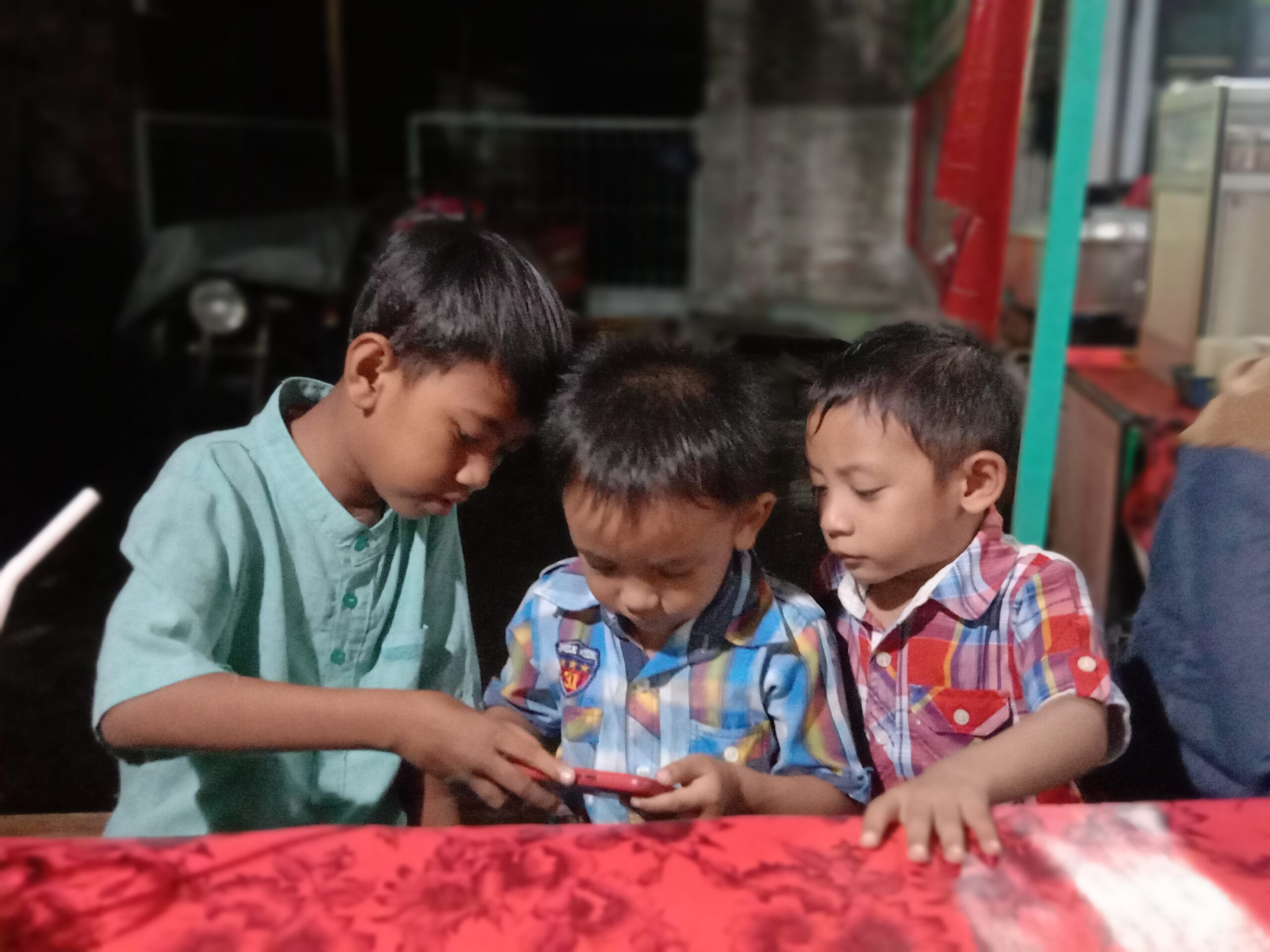PHOTO BY ERIC LAFFORGUE/ART IN ALL OF US/CORBIS VIA GETTY IMAGES
Source >>>
Efforts to mitigate climate change can worsen “relational tipping points” with Indigenous peoples that were crossed long ago, says one expert.By Becky Ferreira April 21, 2021, 7:00pm

Tipping Point covers environmental justice stories about and, where possible, written by people in the communities experiencing the stark reality of our changing planet.SEE MORE →
Rapid deforestation. Permafrost melt. Ice sheet decline. These are just a few of the “tipping points” in Earth’s climate system that could trigger runaway changes if crossed. As global temperatures continue to rise due to human activity, scientists warn that tripping these ecological wires will exacerbate the climate crisis in dramatic and irreversible ways.
For generations, the burden of these ominous trends have disproportionately fallen on Indigenous peoples around the world—and the consequences of crossing climate and ecological tipping points will also be felt first by these communities. ADVERTISEMENT
But there’s another type of threshold that has deep implications for Indigenous peoples, yet has received a tiny fraction of the attention afforded to climate-related tipping points, according to Kyle Whyte, who serves as George Willis Pack Professor of Environment and Sustainability at the University of Michigan and is an enrolled member of the Citizen Potawatomi Nation.
In a 2019 article published in WIREs Climate Change, Whyte introduces the idea of “relational tipping points,” which are not measured by sea ice extent or global forest cover, but by qualities central to Indigenous kin relationships: consent, trust, accountability, and reciprocity, among others.
“Indigenous people and other groups have been talking about these issues for decades and generations,” Whyte said in a call. Big infrastructure projects create “a situation that’s not conducive for Indigenous people to really benefit or to be safe,” he pointed out, a problem that can apply as much to renewable energy infrastructure or forest conservation projects as it does to pipeline or oilfield construction.https://oembed.vice.com/yRdpN0q?lazy=1&v=1&app=1
“A good number of people will do almost whatever it takes to get to a zero-carbon footprint, but actually, there hasn’t been an urgency to solve the social issues,” Whyte noted. “I’m still horrified that people aren’t as concerned about the fact that any efforts to lower our carbon footprint occur in the context of high conflict situations, oppressive situations, and situations where people’s consent doesn’t matter, which are unresolved.”
While many governments and conservation organizations are announcing ambitious plans to reduce greenhouse gases, often touting the benefits of these projects for Indigenous peoples, few emphasize, or sometimes even acknowledge, that relational tipping points have long since been crossed for these communities. ADVERTISEMENT
The conservation movement has a sordid history of disempowering Indigenous peoples, sometimes to the point of dispossessing them of their lands and livelihoods, with the misguided goal of protecting important biomes. In recent years, the Sengwar people have been repeatedly evicted from their ancestral homes in Kenya by the nation’s forest guards, and millions of Indigenous peoples in India are at risk of eviction on the grounds of forest conservation.
These practices, which are sometimes known as “green-grabbing,” have glaring moral and ethical failings, but they also ignore heaps of evidence that show Indigenous peoples are more effective stewards of their own lands than outsiders.
“We have the ability as Indigenous nations and Indigenous populations to actually conserve these lands that do exist, that can be protected, that are Indigenous lands, that do not have to be developed, and that can be properly conserved in a way that makes sense for us—and for everybody,” said Kandi White, Native energy and climate campaign coordinator at the Indigenous Environmental Network and a citizen of the Mandan, Hidatsa, Arikara Nations, in a call. ADVERTISEMENThttps://dae41de0b749be992ad0dad6b8c73ea5.safeframe.googlesyndication.com/safeframe/1-0-38/html/container.html
“But we can’t have that when you have corporations and money-hungry, greedy people coming in and saying, ‘We’re going to continue plowing through and doing these projects with or without you,” she added.
Indeed, many renewable energy projects like hydroelectric dams or wind farms are greenlit without the consent of Indigenous communities whose lands and traditions will be most affected. World News
Indigenous Workers Are Escaping ‘Toxic’ Fossil Fuel Jobs
“Even though it’s fantastic that there might be a lot more money than before put into these issues, you hit the relational tipping point issues when you actually get to the relationships and techniques of how the money will flow,” Whyte said. “When you’ve got a lot of poisoned relationships and toxicity that can’t be repaired overnight, what measures can be taken in the short term to stop that from happening? I’m actually pretty pessimistic there are short-term ways you can solve that.”
This tension between ecological tipping points and relational ones is reinforced in many ways by the norms of public conversation about the climate crisis. While it is useful to highlight positive solutions and success stories about decarbonization, these can also have an anaesthetizing effect on news consumers who are understandably looking for bright spots and signs of progress on an issue that is, taken as a whole, overwhelming in its complexity and implications. ADVERTISEMENT
White points to the common tactic of making individuals feel as if they are contributing to climate change mitigation by small lifestyle changes such as recycling their waste products, when the onus should really be placed on the industrial companies that are most responsible for greenhouse gas emissions.
“It’s about making people feel good, even if in reality, they’re not helping solve the climate crisis,” White said. “We have to see past that lie, and see past that ‘feel-good feeling’ if it’s not helping everybody as a whole on the planet—and not just humans, but all life on the planet, because we often forget about the four-legged, the winged, and everything that swims.”
“We need them and we rely on them as much as they rely on us,” she continued, “and quite frankly, they’re sick too, and they’re dying.”
The conversation around climate change also frequently evokes a ticking clock: if we fail to decarbonize our energy system within a given timeline, the consequences will be exponentially more severe for future generations. These science-based predictions are useful for climate activists because they can have a galvanizing effect on governments and other organizations with the power to mitigate climate change with clear actions set for tight deadlines.
But as Whyte notes, the loss of trust, consent, and other relational qualities between Indigenous communities and oppressive cultures can’t be met with the same toolkit or timeline. Those issues must involve an uncomfortable accounting of the role of privileged communities in generations of genocide, abuse, and cultural dislocation. Facing this reality is not only a moral imperative, it is also an important lens through which to understand the emergence of human-caused climate change.World News
Learning a New Language Can Help Us Escape Climate Catastrophe
“The way in which a lot of (climate) issues are described relies on language that doesn’t emphasize what I am calling kinship issues,” Whyte explained. “For example, it’s usually described as if there’s climate change, which has to do with chemicals in the atmosphere and all of that, and then there’s the climate change impacts.”
“But what if climate change was described more as something that is actually a social phenomenon?” Whyte continued. “You start with the idea that people didn’t respect each other’s consent, and then from there, you move into how that generates climate change.”ADVERTISEMENT
This way of reframing of the conversation could help privileged people understand that their newfound fear of an ecologically disastrous future, or a world that is alien and dystopian compared to the one they were reared in, is not unique in the slightest. This is simply a much milder and late-onset version of what Indigenous communities have been going through for centuries.
There are slivers of hope that some societies are beginning to recognize the importance of restoring relational qualities between peoples and their environments. New Zealand’s Te Awa Tupua Act is one famous recent example: the 2017 legislation confers legal personhood to the Whanganui River to reflect its unique ancestral relationship to Māori communities. The act follows similar moves developed by Māori leaders that seek to centralize Indigenous cosmology and principles in legal frameworks, and offers one initial path forward toward more robust relational bonds across cultures.
The Te Awa Tupua Act is, of course, specific to the cultural traditions and historical context in New Zealand, and analogous efforts in other nations would have to develop their own approaches to nurturing kinship movements.
White is optimistic that the increasing cross-continental organization of Indigenous communities can help to bring about these kinds of transformational changes. From her perspective, we are living in a “time of prophecy,” in which our focus extends beyond short-term gains cycles to the consequences of our actions some seven generations from now—a shift she said has been foreseen by many Indigenous communities around the world.ADVERTISEMENT
“We are very much in a position of power to be able to conserve in the way that we see fit,” White said. “This has to do with traditional ecological knowledge and listening to Indigenous peoples about the proper way to conserve lands. That is what we’ve been fighting for constantly and continually.”
These types of perspective shifts represent the possible kernels of renewed trust and reciprocity between Indigenous communities and societies that have oppressed them. But any efforts to reverse relational tipping points must also face a fundamental reality: much like climate tipping points, much of this damage may simply be irreparable.
“It might not be possible to completely repair generations of oppression,” Whyte concluded. “Actually, there are consequences, and there are things that are permanent.”
Follow Becky Ferreira on Twitter.
This story is part of Covering Climate Now, a global journalism collaboration strengthening coverage of the climate story.
Have a story for Tipping Point? Email TippingPoint@vice.com

